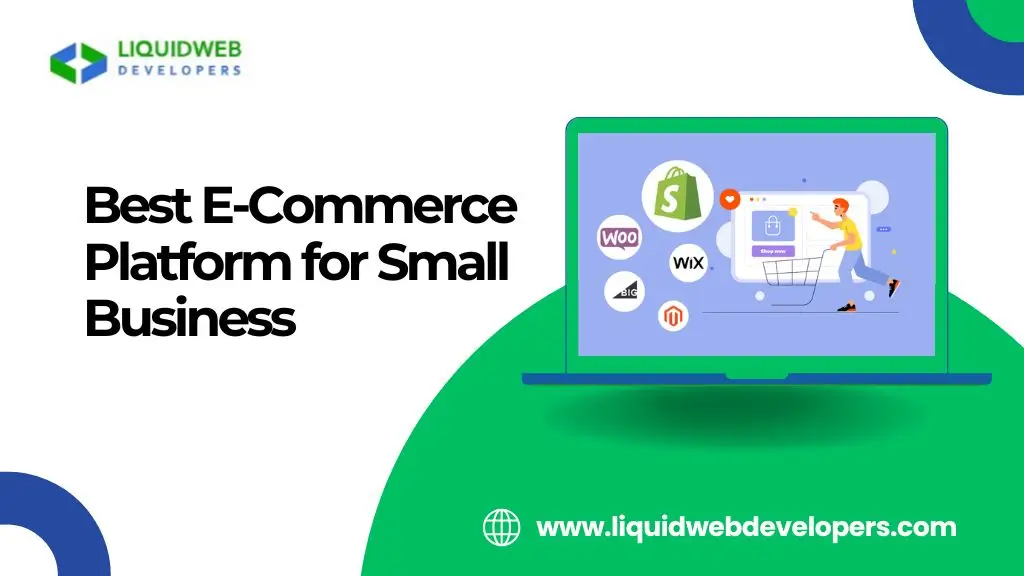Best E-Commerce Platform for Small Business

1. Introduction
Choosing the right e-commerce platform for your small business is just about the most important decision you’ll make as you go into online sales. The right platform enables you to get up and running fast, manage costs, and build a trusted experience. Today’s small business online store builder options mean you can have a professional storefront without deep technical knowledge, from drag-and-drop store builder interfaces to cloud-based e-commerce solutions that handle hosting, security, and backups. Whether you’re looking for a cheap e-com platform for a small shop or the best all-in-one e-com solution, there is an alternative that fits your budget and needs. Click here for more info.
2. Why Choosing the Right E-Commerce Platform Matters for Small Businesses
A platform affects everything—fees, marketing ability, design flexibility, and growth. If your platform charges high fees (e-commerce platforms with low fees are preferable) or lacks good online payment processing for small businesses, you’ll feel the impact on margins. A platform that’s not user-friendly will slow you down and frustrate customers. Conversely, an ecommerce SEO-friendly platform and a mobile-friendly e-commerce website can boost traffic and conversions. In short, the right choice supports small business online sales growth without forcing you to replatform as you scale.
3. Key Features Every Small Business Should Look For
When evaluating options, prioritize features that reduce friction and support growth: true drag-and-drop store builder tools so you can build an e-commerce store easily, integrated e-commerce platforms with payment gateways, and templates or online shop design tools that match your brand. Look for customizable e-commerce platforms so your store doesn’t look generic, secure online store platforms to protect customers, and platforms that are scalable e-commerce platforms so you won’t outgrow them. If you’re new, pick a system that offers a free online store trial so you can test it risk-free.
4. Top-Rated & Affordable E-Commerce Solutions for Startups
Startups often need affordable e-commerce solutions for startups that still deliver value. Shopify for small businesses is one of the most popular because it’s easy to use, has robust app integrations, and has strong support. Wix e-commerce for startups and Squarespace online store are ideal for creators and boutique owners who want beautiful templates and a simple editor. BigCommerce for entrepreneurs is powerful for stores that expect quick growth, while Magento for small business (an open-source Shopify alternative) suits those with developer resources. For budget-conscious shops, there are cheap e-commerce platforms for small stores and low-cost small business website builders for e-commerce packages that let you start small and upgrade later.
5. Best Online Store Software & Platforms Compared
If you’re comparing the best online store software for beginners, don’t forget platform strengths:Shopify for small businesses shines for speed and atmosphere; WooCommerce vs. Shopify often comes down to manipulation (WooCommerce) vs. comfort (Shopify). Wix is powerful on layout and simplicity, Squarespace focuses on visual storytelling and boutique e-trade, and BigCommerce gives enterprise-level promoting tools for developing manufacturers. Think about the E-Trade internet site price for a small commercial enterprise (subscription + payment charges + apps) and whether you prefer self-hosted flexibility or managed hosting (e-commerce hosting protected).
6. Best Online Marketplaces for Small Businesses
Marketplaces like Amazon, Etsy, and eBay remain important since they’re the best online marketplaces for small businesses in terms of built-in traffic. They are among the top-rated online selling platforms and let you start selling online without coding, but they also take a cut and limit branding. For many small sellers, the smart approach is to sell on marketplaces while building your branded store using top online business platforms—that gives immediate reach and long-term control.
7. Specialized Platforms for Different Business Models
Different business models need different tools. The best dropshipping platforms for beginners (Shopify with apps and pocket) simplify inventory management. If you’re launching a one-product Shopify store, Shopify’s templates and checkout flow are a fast path to market. For digital goods, look for digital store solutions for small businesses that handle licensing and delivery. Creatives will pick platforms with strong online shop design tools, and entrepreneurs who want maximum customization may choose Magento for small business or WooCommerce as an open-source Shopify alternative.
8. E-Commerce Costs & ROI for Small Business
Budgeting is straightforward if you know the components: domain and e-commerce website hosting, platform subscription (varies by vendor), transaction fees, and marketing spend. Ecommerce website costs for small businesses can start low ($10–$50/month) and grow as you add apps and marketing. Consider lifetime value vs. cost—a platform with slightly higher fees but excellent conversion tools can deliver better ROI. Also weigh online payment processing for small business costs and whether a platform offers built-in or third-party gateways.
9. Future of Small Business E-Commerce
The future favors platforms that make selling frictionless: better mobile-friendly e-commerce websites, stronger analytics in e-commerce tools for entrepreneurs, and AI-driven personalization. We’ll see more cloud-based e-commerce solutions, tighter integrations between marketplaces and standalone stores, and a rise in platforms tailored to be the best platforms for online entrepreneurs. As the ecosystem continues to expand, words such as “Shopify worth,” “Shopify stock,” and “average Shopify store revenue” will continue to demonstrate why major platforms can draw both sellers looking up and also investors.
10. Conclusion & Recommendation
If you need rapid advice: move to Shopify for small commercial enterprises in case you want pace and a robust surrounding; use WooCommerce if you’re looking for complete control with much less platform lock-in; strive for Wix e-commerce or Squarespace online stores for start-ups while format and ease are top concerns; do not forget BigCommerce for marketers even as you expect rapid increase. Whatever you pick out, test with a create-on-line-shop-loose trial, measure small enterprise online income increase, and prioritize steady, e-commerce search engine marketing-friendly structures that aid your emblem. A clear method, paired with the right small enterprise online store builder, will flip site visitors into clients and help your enterprise scale without surprises.
